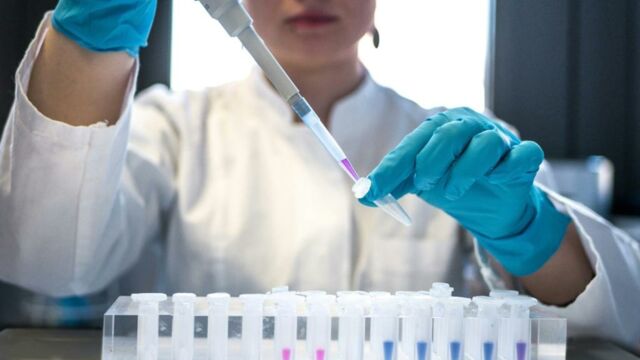Medicine is constantly researching new treatment options for various diseases and often makes one discovery or another in the process. For example, researchers have recently finally found the cause of the so-called 'Viking's hand disease'. Others have recently discovered a new chronic disease, as well as a supposedly a sixth basic flavour.
Discover our latest podcast
A new type of bacteria has recently been discovered in a hospital in England, as reported by the Sun and dayFR magazine. According to the report, a patient with heart problems contacted St. Thomas Hospital in London. He is said to have been suffering from an infection. The doctors then examined his blood - and made an interesting discovery.
New type of bacteria as the cause of infection
Investigations into the patient's symptoms revealed that two different types of bacteria had caused his infection: Firstly, the bacterium 'Nocardia Nova' and secondly, a new species that could not be identified by the doctors.
In order to clarify the identity of the bacterium, the doctors used the new technology of nanopore sequencing. Ultimately, a new subspecies of the bacterial group 'Variovorax' was found.
Investigation with new technology
According to the doctors, the patient - a sheep farmer from Canterbury in southern England - may have been infected with the bacterium when administering anti-parasitic medication to his sheep. A chronic skin disease may have acted as a source of infection.
The results of the investigation using nanopore sequencing are presented in the International Journal of Systematic and Evolutionary Microbiology, with the authors advocating wider use of the technology. Nanopore sequencing makes it possible to examine longer DNA strands much faster. It is then no longer necessary to send samples to specialized laboratories and wait for the results, which unnecessarily slows down the process.
Read more:
⋙ Alzheimer's: Scientists discover the surprising link between the disease and your stomach
⋙ Doctors left shocked after discovering a whole housefly inside this man's intestine
This article has been translated from Gentside DE.
Sources used:
The Sun: "INFECTION CONTROL Never-before-seen bacteria discovered lurking in heart of patient at London hospital"
dayFR: "A new type of bacteria has been identified"
International Journal of Systematic and Evolutionary Microbiology: "The first reported case of human infection with Variovorax durovernensis; a novel Variovorax sp. Isolated from the prosthetic aortic graft of a shepherd"















